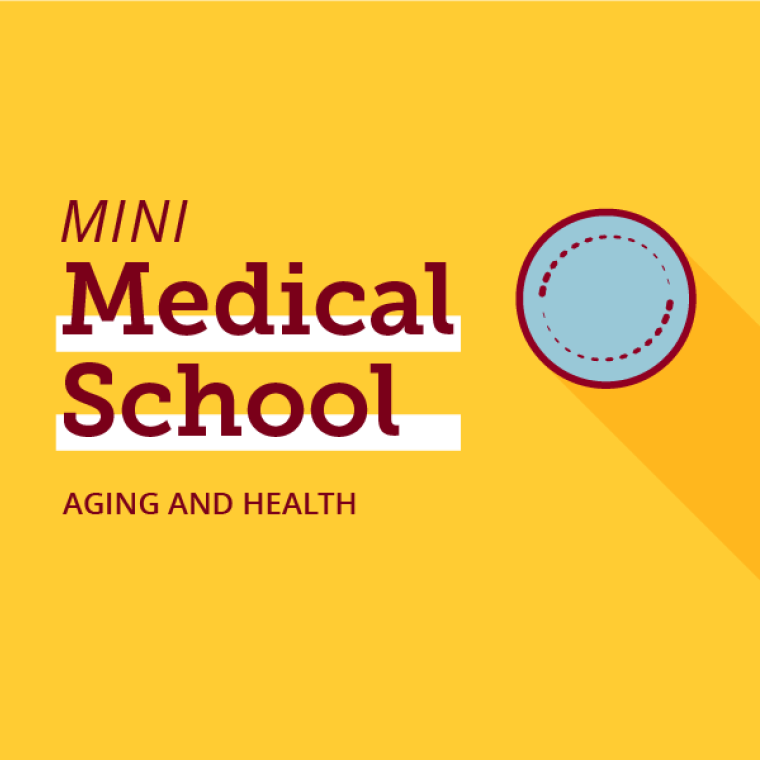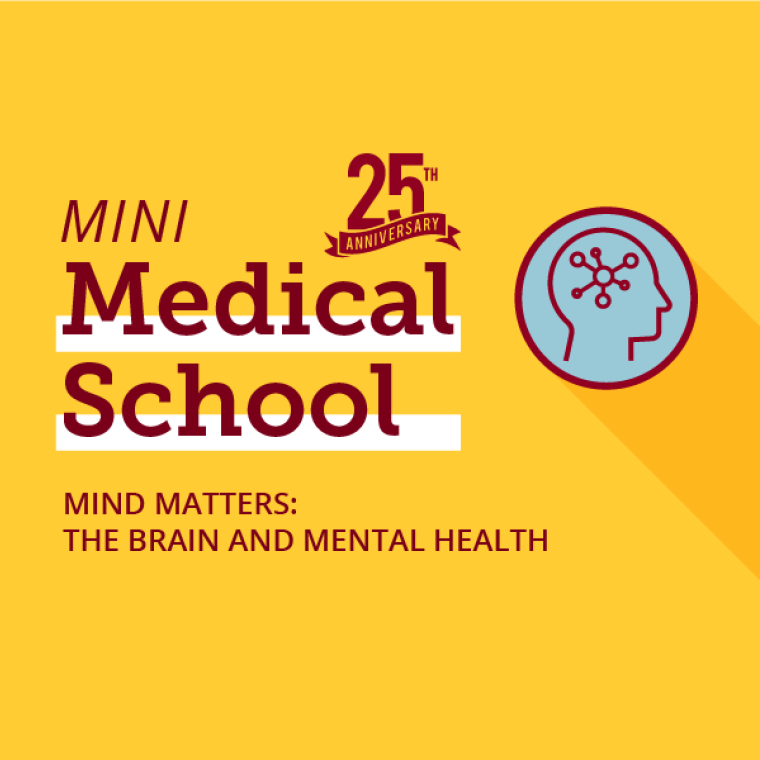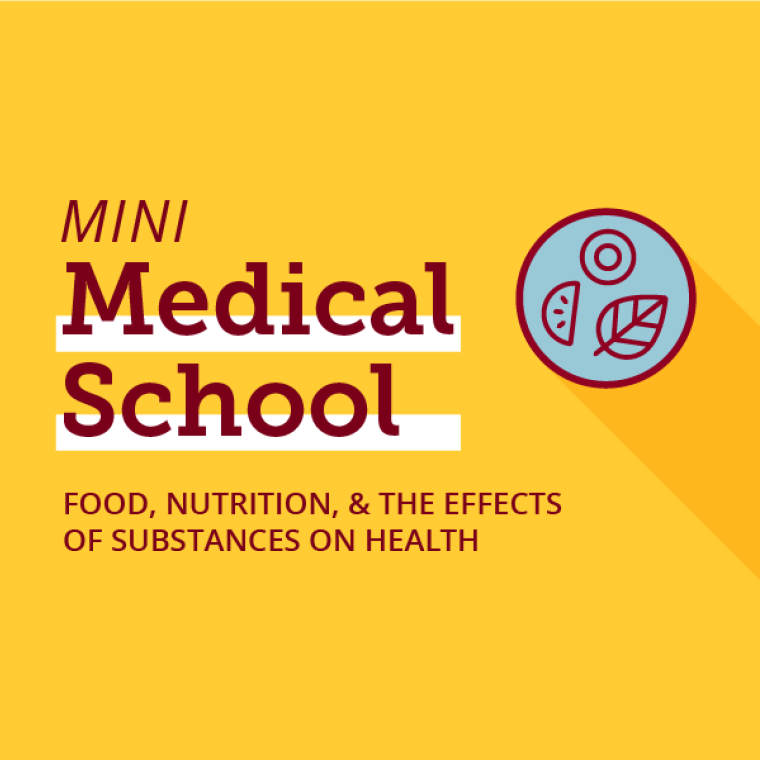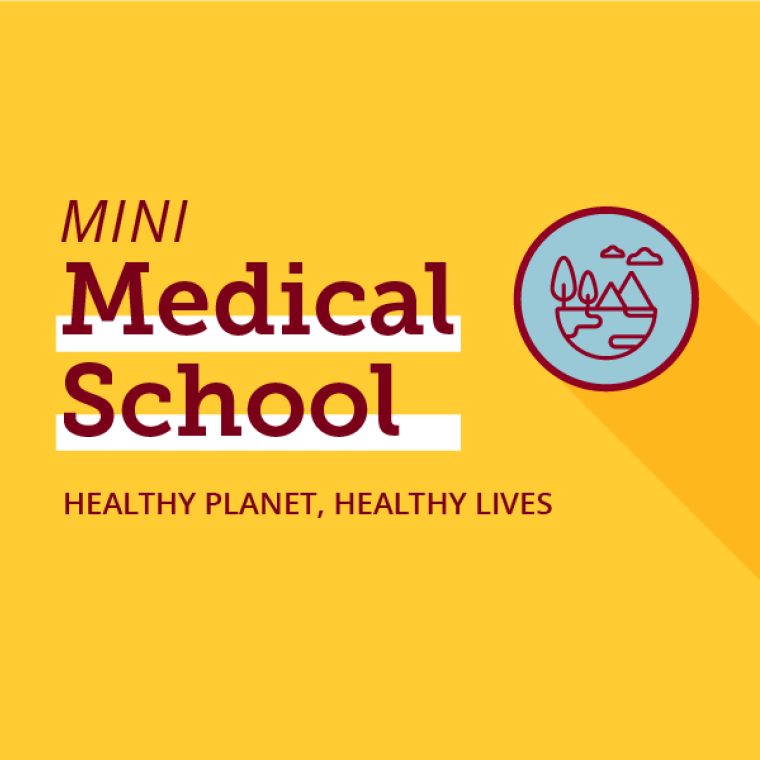Mini Medical School: Aging and Health
With more people living longer, we are approaching the tipping point at which our state, country, and world are impacted by the concurrence of lower birth rates and increased longevity in our senior population. 2020 was the first time Minnesota’s population in the 65+ age group was larger than in the 5-17 age group. With the potential crisis of fewer health professionals for more people needing care and the rising impact of age-related diseases like dementia, heart disease, and cancer, many efforts are focused on quality of life—increasing healthspan, as much as lifespan.
There is no doubt that aging affects us all. We are confronted with learning to care for older loved ones and considering our own futures as we age. Aging healthily isn’t just a personal issue; it is also one of the most pressing health concerns.
About Mini Medical School
Mini Medical School offers a unique glimpse into the health sciences at the University of Minnesota. Community learners with a shared interest in health embark on a journey examining the scientific foundations of health and disease. Presented using common language for ease of understanding complex topics, your guides are internationally renowned experts who are shaping the way health care is delivered locally and globally.
Join Email List
Stay connected and learn about Mini Medical School events
Contact:
[email protected]
A Local-to-Global Look at Aging
The number of Minnesotans turning 65 in this decade (about 285,000) will be greater than the past four decades combined, and by 2030 more than 1 in 5 Minnesotans will be 65 or older. By attending this session, you’ll learn what the current landscape of aging looks like both locally and globally.
Q&A
- Are there gender differences in aging?
- What role does gender play in dementia care?
- Are there gender differences in seeking health care?
- How did the Nun Study advance understanding of Alzheimer's and dementia?
- What's being done to address older Minnesotans' transportation needs?
- What role does language and communication play in aging and dying?
- What does "dying well" in the U.S. look like?
- What's a care model for people with chronic conditions?
Speakers

Moderator:
Joseph E. Gaugler, PhD
Center for Healthy Aging and Innovation, School of Public Health

Joshua Fergen, PhD
Memory Keepers Medical Discovery Team

Rajean Moone, PhD, MS
College of Continuing & Professional Studies

Tenzin Namdul, TMD, PhD
Earl E. Bakken Center for Spirituality & Healing
Creating Pathways to Healthy Aging
Mental health and wellbeing are important at every stage of life–how do we adapt to life changes and maximize self-care as we age? By attending this session, you’ll learn about nutrition and aging, resources for medication management, and improving quality of life.
Q&A
- How does the concept of One Health fit in geroscience?
- Does growth hormone help older adults with physical activity?
- Will long term care facilities have on-site dental and health care in the future?
- Do senescent cells look different across gender or race?
- Is it better to stand while using our phones and computers?
- How do I know if a clinical care setting is age-friendly for my loved one?
- Does alcohol use play a role in aging-related problems?
- What can I do during work to help counteract the effects of being sedentary?
- How can I create a pathway to healthy aging?
- How does oral health affect overall health?
- What factors go into healthy aging?
Speakers

Moderator:
Joseph E. Gaugler, PhD
Center for Healthy Aging and Innovation, School of Public Health

Laura Niedernhofer, MD, PhD
Medical School

Stephen K. Shuman, DDS, MS, FGSA
School of Dentistry

Mary Whipple, PhD, RN, PHN
School of Nursing
Thriving: Mental Health and Wellbeing
Mental health and wellbeing are important at every stage of life–how do we adapt to life changes and maximize self-care as we age? By attending this session, you’ll learn about nutrition and aging, resources for medication management, and improving quality of life.
Q&A
- Should hospitals and nursing homes prescribe antipsychotics for seniors in care?
- Should antipsychotic drugs be used by people with dementia?
- What is acceptable as a "high quality" protein?
- What are trends in long-term care facilities and nursing home alternatives?
- Tell me more about care in nursing homes vs. in home and community-based settings.
- Can we meet our diet and nutrient requirements through food rather than supplements?
- What should I know about medication-food interactions?
- Does Minnesota have a rating system for nursing homes?
- Does a Western diet affect healthy aging?
- How can I support the quality of life and wellbeing of older adult family members?
Speakers

Moderator:
Joseph E. Gaugler, PhD
Center for Healthy Aging and Innovation, School of Public Health

Brian J. Isetts, PhD, BCPS, FAPhA
College of Pharmacy

Tetyana Shippee, PhD
School of Public Health

Lyn Steffen, PhD, MPH
School of Public Health



